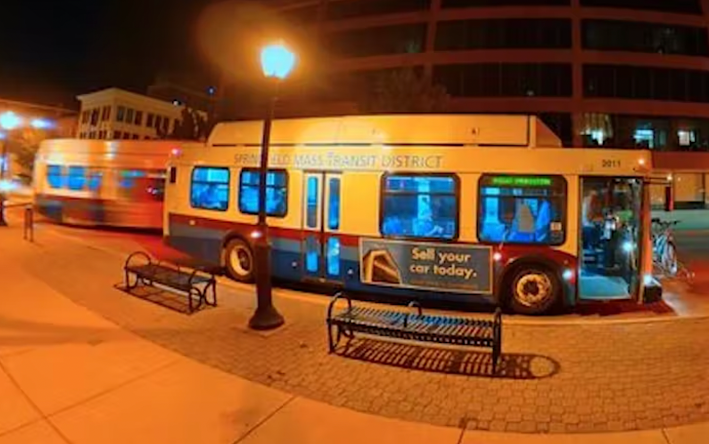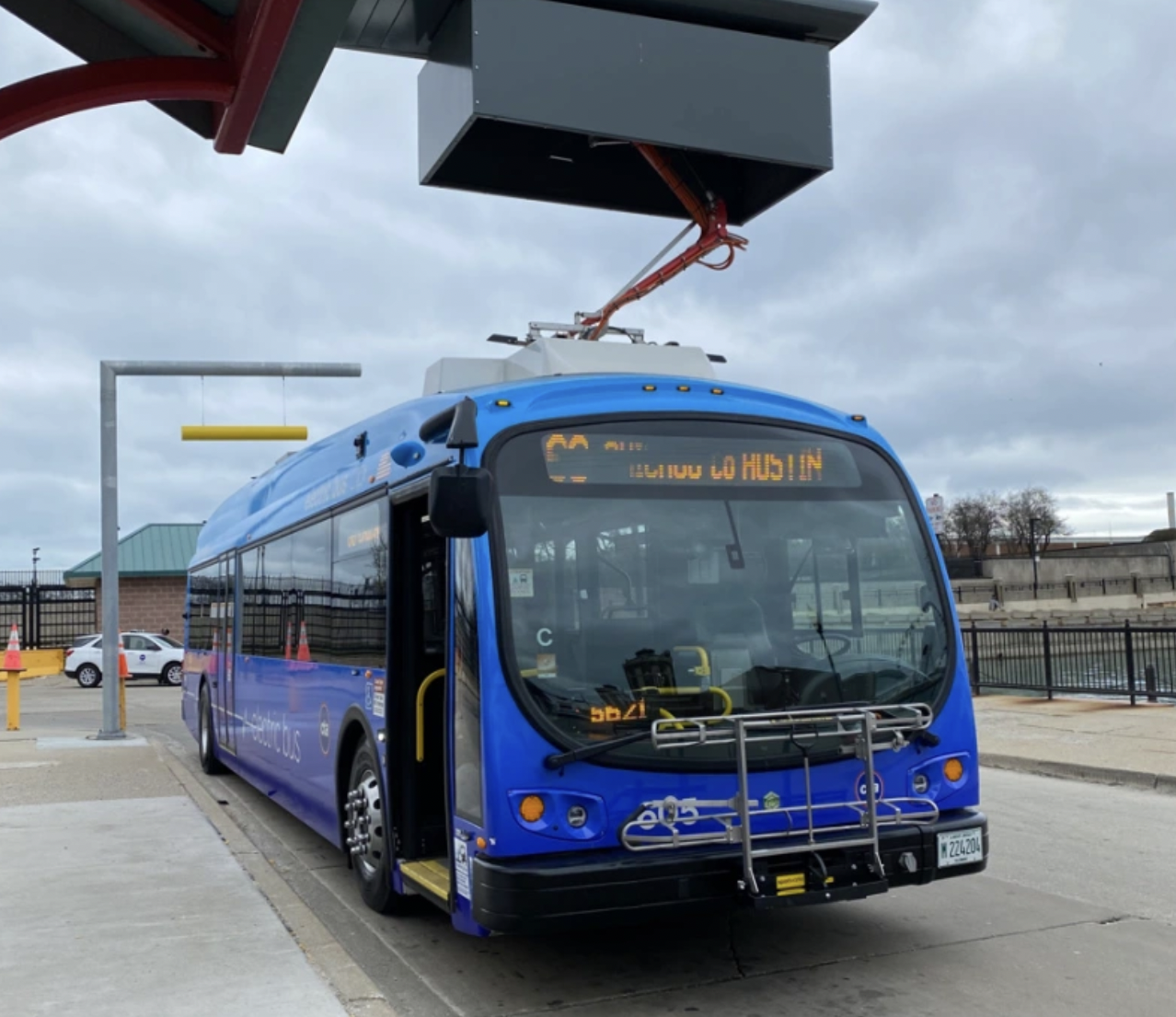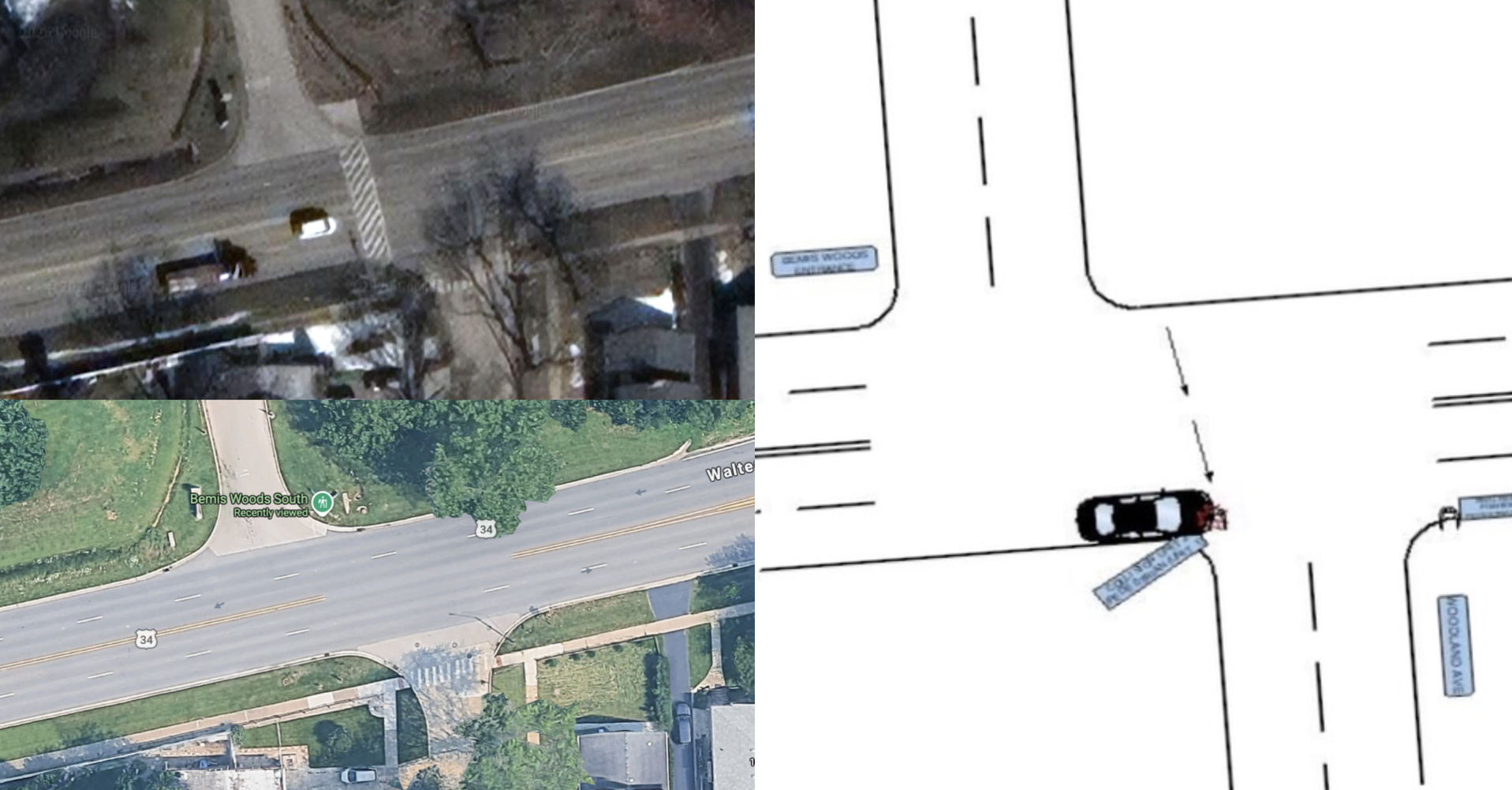There was good news on Tuesday for the CTA, as well as four other public transportation systems across Illinois, as the U.S. Department of Transportation’s Federal Transit Administration today announced $1.66 billion in grants to help electrify bus fleets nationwide. These awards, which were made under FTA’s Buses and Bus Facilities and Low- and No-Emission Vehicle programs, are the agency's first competitive grant selections under the $1.2 trillion federal infrastructure bill that passed last November.
While electrifying buses is good for improving air quality and reducing carbon emissions in cities, it's important to remember that even diesel-powered buses help achieve that goal by converting car trips to transit journeys. Moreover, all buses are much more effective at lowering pollution levels if their service is fast and reliable, which is crucial for encouraging ridership. That requires time-saving features like well-enforced bus lanes and prepaid boarding, which Chicago has been very slow to adopt compared to peer cities like New York and Los Angeles.
CTA gets almost $29 million to electrify its bus fleet
The FTA awarded $28.8 million to the CTA to pay for new all-electric buses, plus bus facility communication and safety upgrades to accommodate the new vehicles. It's the first major federal grant the CTA has received since it released the “Charging Forward Plan” last February, with the goal of electrifying its bus fleet, currently over 1,800 vehicles, by 2040.
"It's vital that the CTA system be sustainable, affordable, and efficient for both our residents and our environment," said Mayor Lori Lightfoot in a statement. "With this grant funding, not only are we taking steps to protect our environment, but we are leading the way for other municipalities. I'm pleased to see this award bring us one step closer to a climate resilient Chicago."
The CTA will use $3.4 million of the grant to buy 10 electric buses. Recently the local chapter of the group Climate Reality Project called on the transit agency to cancel its plans to purchase new diesel buses and instead buy e-buses.
Roughly $13.2 million of the federal funding will go towards upgrading the CTA's Chicago Avenue Garage in Humboldt Park. According to the transit agency, routes operating out of that garage serve an area that is 93 percent POC/Latino and 86 percent low income, "which means CTA’s bus electrification efforts will bring significant environmental benefits to minority and low-income areas of Chicago where air quality is often worse and there are larger populations with health-related vulnerabilities."
The CTA will use the remaining $1.1 million for training workers on how to maintain and drive the electric buses. As it stands, there are over 20 electric buses in the fleet running on the #66 Chicago Avenue route. The agency hopes to electrify routes serving the 95th/Dan Ryan Red Line terminal in the coming years.
Other Illinois transit systems getting electrification money
The Bloomington-Normal Public Transit System’s Connect Transit was awarded $13.1 million from the FTA to purchase up to five five battery-electric vehicles and 10 zero-emission microtransit vehicles, and to construct a facility to house microtransit and paratransit vehicles and conduct workforce training.

The Springfield Mass Transit District is getting $5.9 million to buy up to four diesel-hybrid buses and four compressed natural gas buses. According to the FTA, "This will reduce greenhouse gas emissions and allow the agency to continue its transition to a low-emission fleet while creating good-paying jobs and providing access to jobs, doctors, schools, and essential services for individuals who live in areas of persistent poverty."
The Rockford Mass Transit District was awarded $6.3 million to buy up to three battery electric buses, two hybrid-electric buses and charging equipment for the buses.
The Decatur Public Transit System is getting $16.8 million to buy as many as four battery electric buses, train staff to drive and maintain the new vehicles, and upgrade electrical systems and install solar panels at a new bus barn. "This will ensure riders in the area retain access to jobs, schools, and essential services, all while reducing greenhouse gas emissions by 45 percent per vehicle," the FTA said.





